
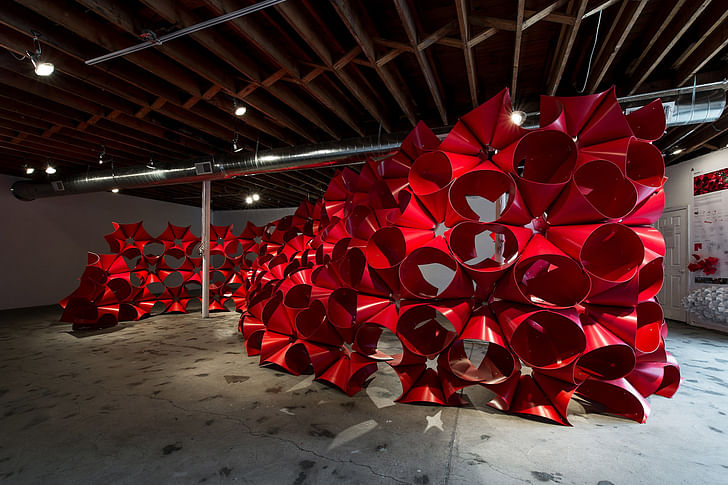
The PERFORMA Studio at the University of Kentucky College of Design is an intensive research and fabrication studio run by professor Mike McKay.
McKay’s research work involves the investigation of material systems and design strategies that create multi-performative material systems utilizing optimization, aggregation and efficiency. Simple units and semi-finished materials are physically tested in order to extract potential performative characteristics and limits. These limits are then negotiated through rigorous digital and physical techniques in order to produce strategies of fabrication. The formal systems have inherent structural capacities and an ability to adapt to changing conditions. Because of the system pliability, variation can occur within a seemingly homogenous system.
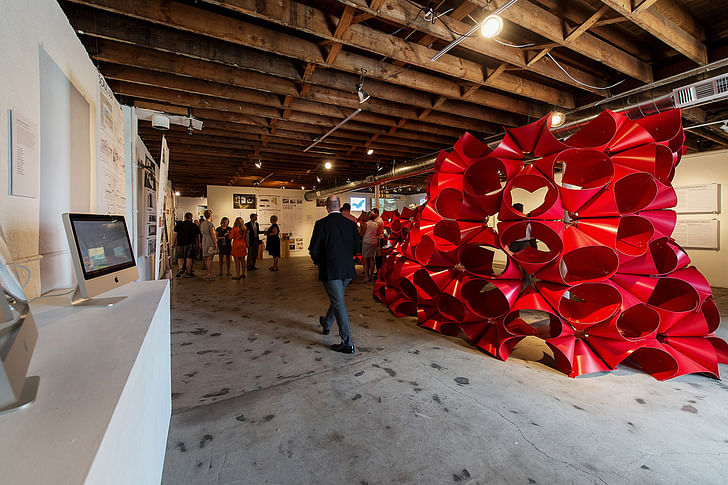
The challenge of the PERFORMA research is to engage a methodology that allows the designer to create dynamic formal systems using SIMPLE materials and methods without the need to rely on ‘rapid prototyping’ techniques. Mass customized materials take a tremendous amount of time and energy to produce and usually are simply a product of software techniques or machining limits. By ‘removing’ reliances on software and output machines, the students are forced to engage a whole host of limits that otherwise would be ignored by simply ‘outputting’. It is then the responsibility of the designer not only to invent the individual unit and subsequent system but also find the means of fabrication that make it possible.
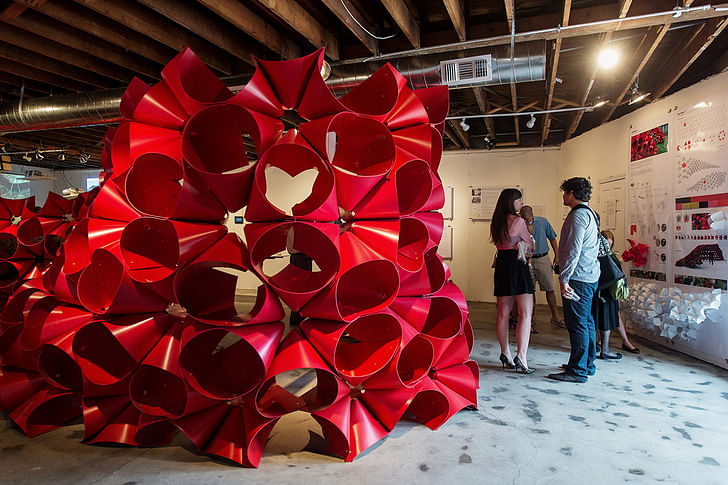
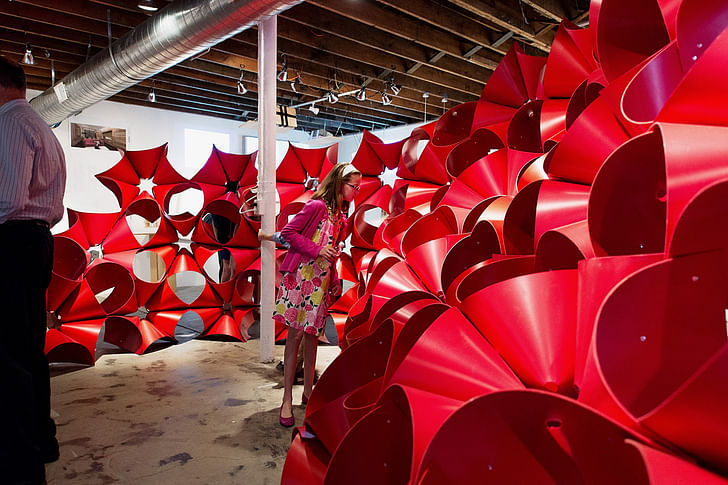
Archinect: Can you describe the students' involvement in the design and fabrication process?
Mike McKay: Over the course of the semester, students developed individual proposals for aggregate formal systems based on the specific research parameters that I set at the beginning of the term. Each week, I conducted individual and group discussions to explore possible improvements to each system - dynamic variation, structural viability, material possibilities, etc. At the midterm, we selected one system to pursue further as a class, with all students working to develop a single full-scale, self-structuring system. This collective effort began with intensive research and testing of materials and fabrication techniques, as well as countless phone calls to material distributors to find the most dynamic, durable, and cost-effective material. Once we identified the best materials and techniques, a second round of refinement occurred with various groups investigating necessary elements such as construction jigs, connection details and limits of tension. The last step in the process involved fabricating the identical units in-house before transporting and forming the system on-site in specific relation to the site. PERFORMA 12 was first installed at the entrance to the annual BEAUX ARTS BALL in Lexington, KY, and later reinstalled at The Land of Tomorrow (LOT) gallery, also in Lexington.
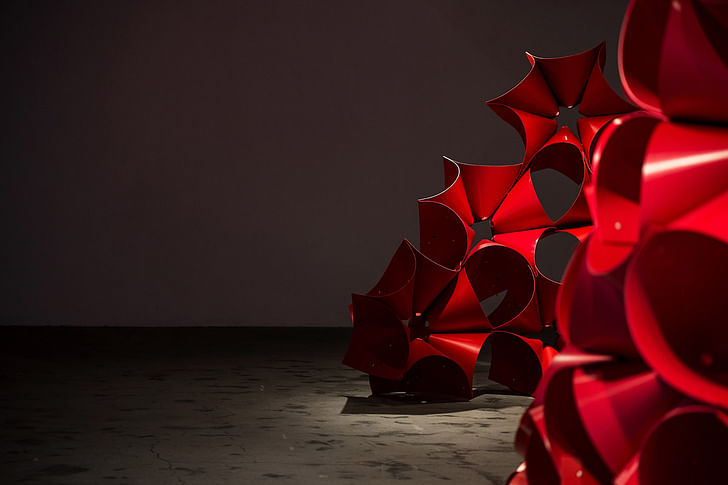
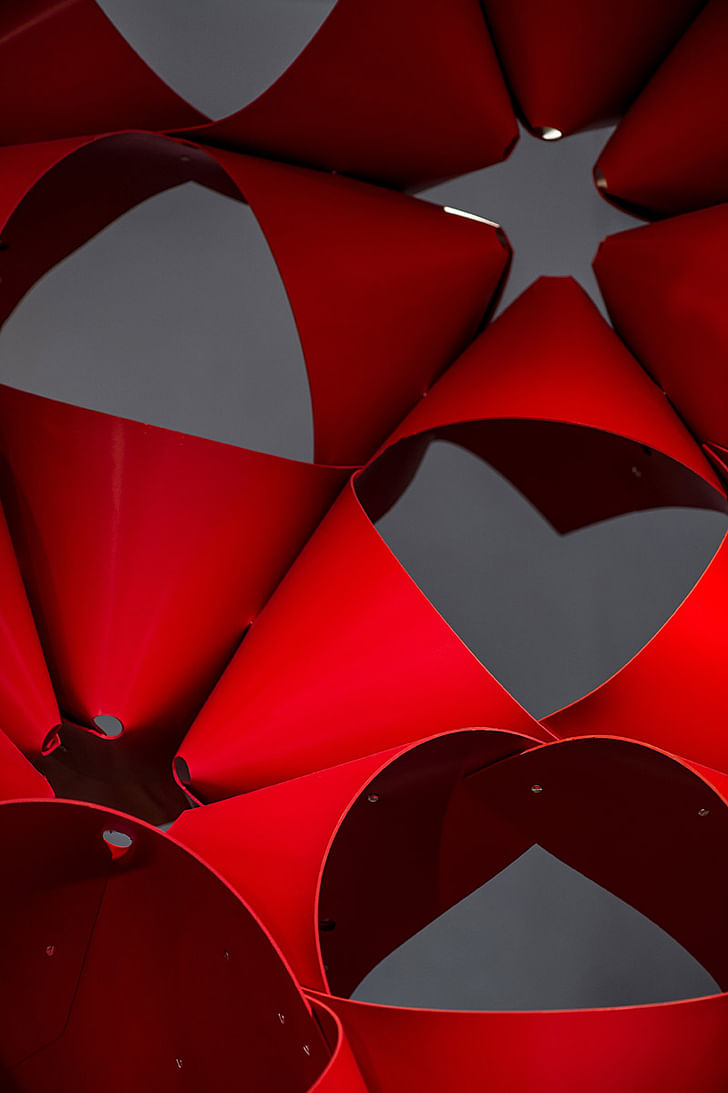
During the course of the studio, what insights and challenges stood out to the students especially?
MMK: One of the biggest challenges with PERFORMA is the difficulty moving the project from initial conceptual paper models to a full-scale, self-structuring form. Instinctively, most students assume that because the study models are structurally sound that a simple scaling-up of the system will provide the same result. Of course this is never the case in architecture and we spend a great deal of time addressing the material reality of a self-structuring systems.
The main idea is to create a dynamic heterogeneous form using extremely simple materials and fabrication techniques: all individual units and connections are identical, but a new quality of complexity emerges due to the system pliability and the seemingly complex geometry. This aspect of PERFORMA is what interests me most, and always most surprising to the students.
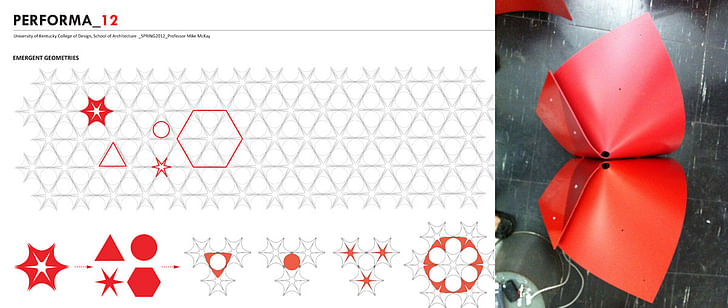
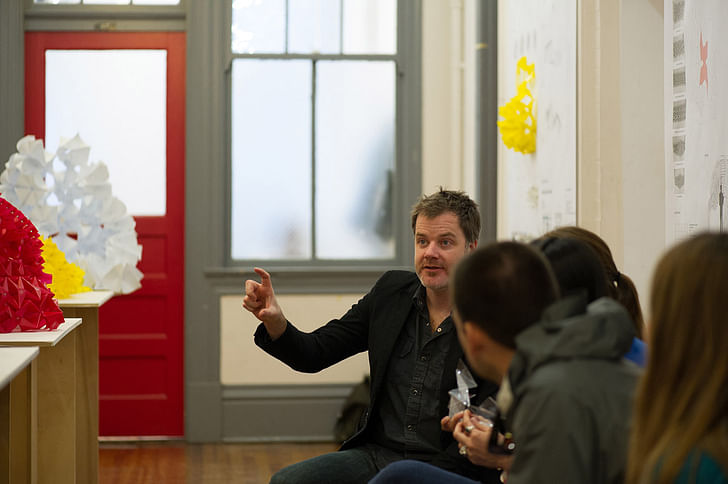
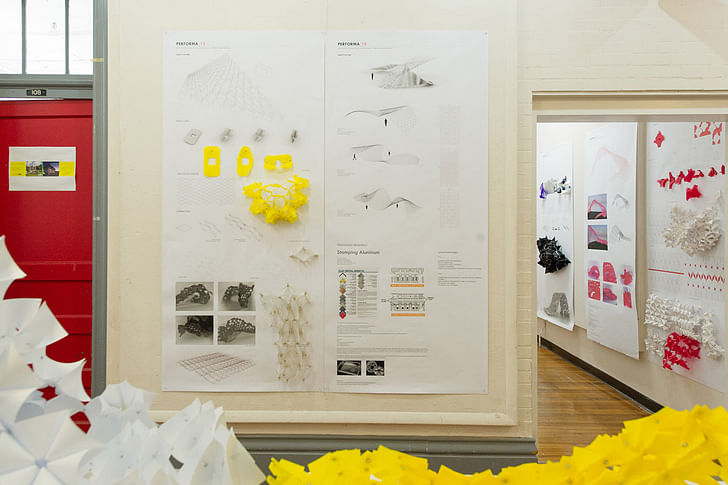
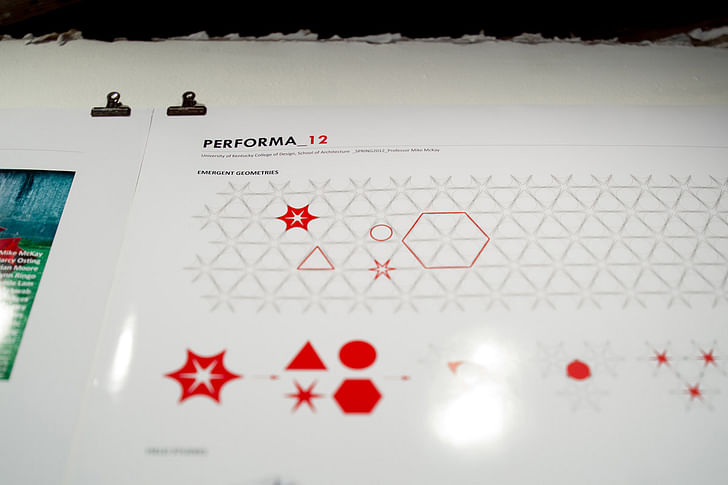
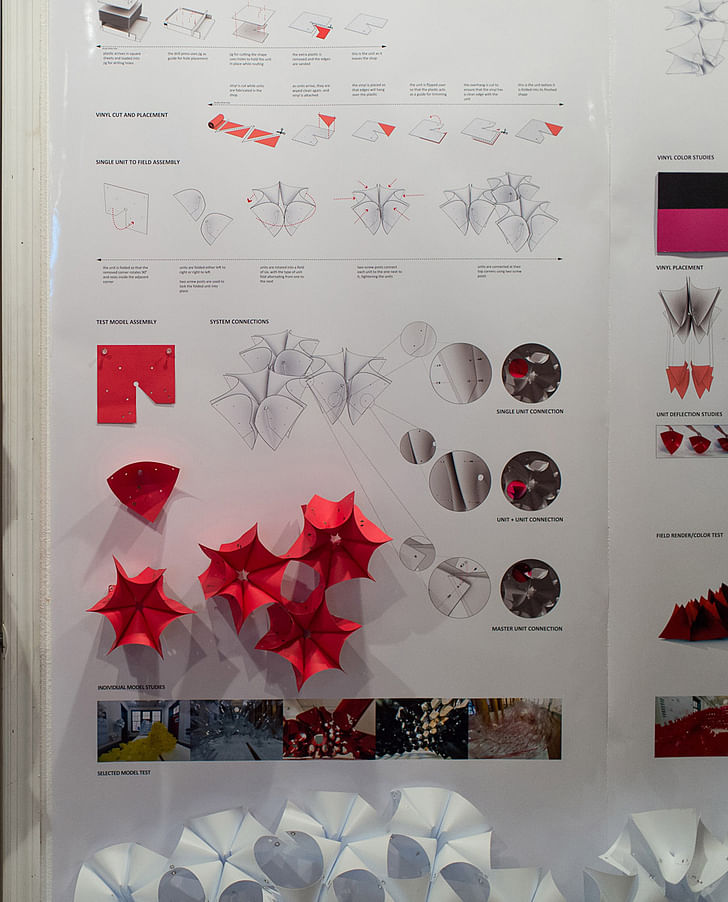
PERFORMA_12:
Mike McKAY, Adriana Torres, Anne Schwab, Bethany Long, Brian Moore, Brian Oldiges, Darcy Osting, David Dudley, Jaime Lam, Jeff Guiducci, Madelynn Ringo, Taisa Sehic
Fabrication Team: Aaron Fritsch, Ben Kolder, Christian Newman, Ben Ward
No Comments
Block this user
Are you sure you want to block this user and hide all related comments throughout the site?
Archinect
This is your first comment on Archinect. Your comment will be visible once approved.